Cersei: Highgarden has bought us the most powerful army in Essos: the Golden Company. Twenty-thousand men, horses – elephants, I believe.
At the end of the seventh season of Game of Thrones, Cersei Lannister confided in her brother Jaime that she planned to reinforce their position in the south with sellswords from across the Narrow Sea, by using looted Tyrell gold to hire the famed Golden Company. This information made more of an impression on those familiar with the book series than the average show watcher. Appearing relatively late in the books, the Golden Company is inexorably entwined with elements that have been omitted from the television series, but even without all that book context the show has given us enough to talk about the Golden Company and how they might factor into Season Eight.
First referenced in A Feast for Crows, we learn that the Golden Company has broken their military contract with Myr, something so unusual that Cersei Lannister’s small council makes note of it. If one should talk to readers who’d journeyed through A Dance With Dragons and inquired about the Golden Company, one could hear accounts of Jon Connington, Old Griff and Young Griff, the Shy Maid, Aegor “Bittersteel” Rivers and his feud with Brynden “Bloodraven” Rivers, and the ruinous Blackfyre Rebellions.
But none of that is in the show. There’s been no discussion of Aegon IV legitimizing his Blackfyre bastards, the years of rebellious conflict, the unsuccessful rebels forming the Golden Company in exile in Essos, nor of former Hand (and greyscale sufferer) Jon Connington. So, it is unlikely that the appearance of the Golden Company in Season Eight will strictly adhere to whatever GRRM has planned for them in The Winds of Winter and beyond. Setting old dynastic disputes and century-long feuds aside, let’s focus on what the show may make of this mercenary company in the final season.
Jaime: When the fighting in the North is done, someone wins. You understand that, don’t you? If the dead win, they march south, and kill us all. If the living win and we’ve betrayed them, they march south and kill us all!
MEN, HORSES, AND ELEPHANTS. OH MY.
Cersei conveniently assigns a number to the Golden Company’s troop strength, on the order of twenty-thousand men. That’s equivalent in quantity to the amount of scrappy soldiers Robb Stark brought with him in the first season. But the Golden Company’s effective strength is probably much more in regards to quality.
Lyanna Mormont: Hmmph.
Me: To simplify my math, I’m not really talking about the contribution from Bear Island.
Lyanna Mormont: Harrumph.
Even though the show presents the soldiery of Westeros as uniformly armed and armored by region (with the Lannister forces richly attired and the northerners much more plainly kitted out) it should be understood that most of the fighting men in the armies of the Seven Kingdoms are not professionally employed. They’re mostly simple smallfolk who’ve been conscripted to march along with their lords.
Fishermen and farriers and farmers.
This was evident when the Dothraki broke the ranks of the Lannister troops escorting the spoils of war taken from the Reach.
Your people can’t fight.
Sellswords are professional soldiers. War is what they do. The effectiveness of Stannis’s forces against the wildling army, a numerically greater but undisciplined host, is a demonstration of that.
Mance: To be fair to us, the teeth-grinder attacked us by surprise.
Renly: He attacked me by surprise too!
Stannis: When you’ve got it, flaunt it.
Stannis fared a bit worse with his sellsword force later on, a force which abandoned him when his southbound army was snowbound and crippled by sabotage. (I assume his mercenary cavalry went directly to Winterfell to pledge their swords to the Boltons, since there’s been no mention on the show of a large band of armed and hungry cavalrymen roaming about the North.)
Queen Cersei is no doubt banking on the Golden Company’s military experience and reputation to not only provide the fighting edge against anything coming south, but also to not abandon her if things get hairy.
We don’t know the amount of fighting men the North are fielding, although King in the North Jon Snow has made it a priority to get as many able-bodied men and women ready for combat in the face of the impending assault by the army of the dead.
Daenerys brings with her a host of Dothraki cavalry and roughly eight thousand Unsullied. (Some number of Unsullied were lost to the Sons of the Harpy in Meereen.) There’s been no estimate of the Dothraki numbers, but Khal Drogo’s fighting khalasar was occasionally referenced as numbering forty-thousand, a size that Viserys Targaryen hoped and Robert Baratheon feared was sufficient to reclaim the throne. This is a reasonable benchmark in estimating Dany’s horsepower.
Depending on what happens when the North encounters the White Walkers, the number of soldiers in the combined Stark/Targaryen defense forces will drop. But barring any catastrophic losses, if the Stark/Targaryen coalition is successful in repelling the army of the dead, they’ll probably have a numerical edge on forces in the field defending Cersei’s position. But a simple numerical edge might not be enough.
The northerners (and allies) will probably have to substantially outnumber the sellswords to overcome the Golden Company’s experience.
This depends entirely on dragons though.
Dragons are certainly a force-multiplier for the northern army. Cersei seemed to emphasize that the Golden Company had elephants, as if that somehow was the same as having dragons. They’d have to be very, very impressive (and fireproof) elephants to stack up.
When Aegon the Conqueror first set his sights on becoming king of the Seven Kingdoms, he didn’t have anywhere near the number of troops required to do so. But he had three dragons.
- Dragons allowed Aegon to destroy Harrenhal, a massive Ironborn citadel in the Riverlands
- Dragons allowed Aegon to defeat a huge combined army from the Reach and the West numbering over fifty thousand.
- Dragons awed the lord of the Reach into pledging fealty to Aegon’s cause outright.
- Aegon’s triumphs with the dragons convinced Torrhen Stark to kneel as a king and rise as Warden of the North, with no loss of northern lives.
Dany’s dragons should be enough to deal with a sellsword army roughly a third of the size that Aegon faced. Or will they be enough?
Cersei: She came here with her dragons and her Dothraki and her Unsullied – she came to show us all her power. Something must have happened. Her dragons are vulnerable.
When Jaime led an army west to capture and loot Highgarden, he brought along a wagon-carried scorpion. (Military buffs will call it a ballista – it’s a big crossbow.) Jaime had the scorpion as part of his wagon train, but without any serious thought that he’d be facing a dragon during the expedition. If any crew had been assigned to the scorpion, they were absent when Drogon attacked, opening up the Lannister ranks for the Dothraki charge. Bronn tried to take down Dany’s flying mount with the weapon, but was unsuccessful. Still, not bad for an amateur.
Bronn: Amateur? For all you know, I’m an expert scorpion gunner. You saw me fire that flaming arrow into the wildfire at the Blackwater.
Me: I’ll retract my use of the word amateur. But I was trying to rationalize you missing.
Bronn: Maybe I was just trying to scare it off.
Had Jaime’s men been prepared for the dragon assault, and maybe had a few more wagons with scorpions, Dany might have lost a dragon before Viserion was taken down by an icy javelin.
Scorpion aren’t always effective (as Bronn amateurly demonstrated) but the Dornish killed Rhaenys Targaryen’s dragon Meraxes with a scorpion bolt, and Jacaerys Velaryon’s dragon was brought down by warships during the Targaryen civil war known as the Dance of the Dragons. Conventional and heavy weapons can work.
The Golden Company, when briefed on the possibility of facing dragons, would be wise to prepare scorpions as defensive measures against aerial attack. For all we know, the elephants Cersei mentions as being in the company’s complement have already been used for carrying siege weaponry in the field. Elephants might not be as impressive as dragons, but they’re certainly more impressive than wagons.
This all assumes that the northern coalition will be coming south to air their grievances with King’s Landing’s lack of support. The grimmer possibility for Cersei and the Golden Company would be not the living coming south, but the implacable army of the dead relentlessly hunting the living.
We don’t have specifics on the size of the horde that shambled through the Wall at the end of last season, or if early in the eighth season their numbers will be decreased (because of potential exposure to dragonfire) or increased (because of fresh northern recruits for their army) but it’s reasonable to assume – if only for the stakes of the conflict – that the wight army will be comparable in size if not vastly greater to Cersei’s southern forces.
Hypothetical elephant-mounted scorpions might still be somewhat effective against the dangerous ghoul-dragon Viserion (the Night King might not enjoy being hit by a scorpion-bolt) but unless the missiles are bearing Valyrian-steel heads, the shafts will be more of an annoyance than a threat.
The Golden Company enjoys the benefit of their soldiers’ discipline relative to the average conscripted Westerosi infantryman – but that can’t compare to the discipline of the wights. The undead don’t get spooked, they give maximum effort, and when directed they follow their directions without question.
But Golden Company elements might have some tactical success versus the undead in one particular respect. Elephants might be the only conventional aspect to counter the undead giants who are marching along with resurrected wildlings.
If the common interpretation of the first teaser trailer is correct, the Riverlands could see a tremendous battle between the wights and the living (as symbolically represented by the animated teaser’s ice and fire motif) – probably near the rivers of the Trident. The show has gone to some lengths to indicate that the wights are not adroit in water, so crossing rivers would probably best be done at fords – but the undead giants could wade across otherwise impassable stretches without floundering or being swept away.
Living giants are difficult enough for humans to deal with, but the undead variety would be so much worse. But elephants are on the same scale as the giants. Even without Valyrian steel blades strapped to their ivory tusks (don’t rule it out) the brutal impact of charging elephants could cripple or debilitate even a giant wight – making it an easier target to handle with conventional flame.
Elephant tusks are useful for ripping up trees – a wight giant might not be harmed all that much by being impaled on an ivory tusk, but an elephant can generate tremendous consussive force with them.
(It’s too much to hope that ivory could fortuitously have the same kind of properties that dragonglass would have on wights. I don’t think there’s anything particularly magical about the dentine that makes up ivory tusks, the way obsidian represents the frozen fire of volcanic deposits.)
If giants are ordered across rivers in advance of the wights to secure the crossings, the Golden Company could engage with this advance guard using the elephants to neutralize the giants.
The immediate concern would be this: the Golden Company might not be the only army with pachyderms in their midst.
Mammoths exist north of the Wall, and although no zombie mammoth has been seen on the show yet, the giants with Mance Rayder’s wildlings made use of mammoths in their siege of Castle Black. Dead giants are part of the undead army, so it’s reasonable to imagine that some of those giants have their huge beasts with them as reanimated mammoths. (If the White Walkers can reanimate a massive polar bear, they should be able to reanimate a mammoth.)
With the Night King obtaining an undead dragon as a counter to Daenerys Targaryen’s aerial firepower, the existence of wight-Mammoths would continue a pattern of the White Walkers being able to match the advantages that the living enjoy.
Desperate elephant cavalry versus lumbering monster mammoths would be a spectacle. But the participation of the Golden Company in Season Eight doesn’t have to be limited to spectacle.
REPO MEN
Midway through Season Seven, Cersei first brought up the Golden Company when discussing repayment to the Iron Bank.
Cersei: I need to expand my armies, my navies. My Hand Qyburn has made overtures to the Golden Company in Essos.
Tycho Nestoris: I know them well. They’ve helped us recover significant sums from parties who have fallen in deep arrears.
Cersei: That’s good to hear. I too would like them to recover some things that belong to me.
It’s possible that Cersei is referring to any parts of the Seven Kingdoms not directly under her control when she talks about recovering things that belong to her. Taking control of the North would probably qualify. But it seems a bit of a redundant statement to make, since she already announced her intent to Iron Bank representative Tycho Nestoris that she plans on re-establishing control of the continent.
Cersei’s statement has the feel of something more personal in mind. She’s lost much during her time on the show, but most of those are things that can’t be recovered, certainly not by the Golden Company. No sellsword can return to her her three dead children, or her father. (Or her dignity, lost to the Walk of Shame.)
It’s reasonable to suggest that the things (plural) she’s referring to are her brother Tyrion and her sister-in-law Sansa Stark. Until Jaime secured his condemned brother’s clandestine release, Tyrion had been in Cersei’s power, doomed to die as a result of being found guilty of regicide. Sansa had been a valuable hostage and something of a project for Cersei, when there was the possibility of Sansa marrying Joffrey. Until Sansa was spirited away from King’s Landing by the late, unlamented Littlefinger.
We’ve seen sellswords engage in special forces operations before.
In the third season when Daenerys was threatening Yunkai, the sellsword captains of the Second Sons drew lots to see which of them would infiltrate the Khaleesi’s camp and assassinate her. Daario Naharis got the assignment, and he did successfully infiltrate her camp (presumably killing an Unsullied so he could get the distinctive helmet and gear as a disguise) but rather than killing Dany, he pledged his loyalty (with the heads of the other Second Sons captains in a bag as a show of good faith.)
Would Cersei still desire to send a Golden Company commando team to infiltrate Winterfell and abduct both Tyrion and Sansa? At the end of last season, there was some unresolved negotiation happening between the Lannister siblings. Tyrion was under Cersei’s power, but she let Tyrion leave her quarters without having the gruesome Gregor Clegane bisect him. It seems like Tyrion is safe at the moment while whatever plan Cersei possibly hatched with him is underway.
But Sansa is a different story. Sansa was a valuable hostage when Ned was taken after Robert Baratheon’s death, and could be useful as a hostage again. In the negotiations at the Dragonpit, Cersei tried to separate her enemies by insisting that she’d only cooperate if the King in the North Jon Snow swore to stay out of the eventual resumption of hostilities between her and Daenerys.
This was stymied by Jon announcing his fealty to Daenerys. To have leverage over the North now, Cersei would need to have control of Ned Stark’s precious girl. Abducting Sansa and holding her as a hostage could do just that.
Daenerys: And the #Jonsa people will find a way to blame me for this.
Of course, any plan to abduct Sansa from the heart of the North could easily backfire, which would have serious consequences.
Jaime: Hey, I’m here to help, but I’m the only one.
Daenerys: What about the Lannister troops your sister promised?
Jaime: Oh, turns out she lied.
Jon Snow: Well, that’s alright. We kind of knew that was going to happen.
Daenerys: Did we?
Jon: Didn’t we?
Bran: I did.
Guard: Your Grace! A ruffian tried to abduct Lady Sansa. Lady Arya has extracted a full confession. He’s a Golden Company sellsword, sent by Cersei Lannister.
Jaime: I didn’t know anything about this.
Daenerys: Didn’t you?
Bran: He didn’t know anything about this. But he did once push me out of the Old Tower window, in case anyone’s interested in that information.
So it is possible that the employment of the Golden Company could have a more personal impact on the plot, instead of just muscle for Cersei.
That is, if they even will be working for Cersei.
BUYING LOYALTY
Back when Lord Eddard Stark was alive and Hand of the King, Petyr Baelish responded with a question to Ned’s assertion that the Hand needed the support of the city watch goldcloaks – men who had a duty to keep the king’s peace.
“Ah, but when the queen proclaims one king and the Hand another, whose peace do they protect?” Lord Petyr flicked at the dagger with his finger, setting it spinning in place. Round and round it went, wobbling as it turned. When at last it slowed to a stop, the blade pointed at Littlefinger. “Why, there’s your answer,” he said, smiling. “They follow the man who pays them.”
— A Game of Thrones, Eddard XIII
It was not only distasteful to Ned Stark to have to bribe the City Watch to back his role as Protector of the Realm – an assignment ordered by King Robert on his death bed – it was also a disaster.
Janos Slynt and the goldcloaks had already been bought with Lannister promises of rewards, in exchange for betraying the Starks and murdering Ned’s men in a coup.
Loyalty can’t always be bought. Or rather, when loyalty is for sale, it often goes to the highest bidder.
Baelish: Or to the man who is actually paying for the services.
Cersei expects the loyalty and support from the Golden Company; she takes it for granted. It hasn’t been explicitly established on the show, but the book version of the sellsword company has a strong reputation. They’re known for keeping to their contracts.
Until they’re not.
“Whilst we await Lord Walder’s death, there is another matter,” said Aurane Waters. “The Golden Company has broken its contract with Myr. Around the docks I’ve heard men say that Lord Stannis has hired them and is bringing them across the sea.”
— A Feast for Crows, Cersei IV
In the books, the Golden Company broke an existing military contract with Myr because it was seizing the opportunity to participate in the succession struggle happening in Westeros. That particular scenario won’t necessarily be replicated on the show, but it indicates that if the stakes are high enough and the opportunity too enticing to pass up, the sellswords might have their own ideas.
Cersei has had no direct dealings with the Golden Company. She’s had Qyburn make the business proposals, and has apparently sent Euron Greyjoy as her agent to close the deal and ferry the sellswords to the Seven Kingdoms.
Like Ned putting his trust in Baelish to deliver the goldcloaks, Cersei’s faith that Euron will fully represent her interests to the Golden Company might not play out as she expects.
The show has not been shy in telegraphing a potential betrayal from Euron.
Cersei: My armada owns the Narrow Sea.
Tycho Nestoris: Euron Greyjoy’s armada owns the Narrow Sea.
Cersei: Euron Greyjoy is loyal to me.
Tycho: For now.
Euron on the show has similarities to his namesake in the books, but he’s not really fulfilling the same apocalyptic pirate-warlock role. But he is also similar to another nautical character in Cersei’s employ, Aurane Waters. In A Feast for Crows, Cersei entrusts the handsome and roguish Aurane with command of a newly constructed (and expensive) fleet of warships. But the bastard of Driftmark spares no time in stealing the fleet for himself – with the possibility of becoming a pirate king of the isles between Westeros and Essos.
Like Aurane, Euron might plan on making free use of Cersei’s resources for his own personal gain. And in a typical reversal of fortune for the Lannister queen, these plans might include supporting Daenerys over Cersei.
Euron came to Cersei’s court, with the stated motivation of wanting to marry the most beautiful woman in the world.
Cersei: Obviously, he means me.
Snow White: As if.
Euron on the show sometimes bears more of a resemblance to his macho-pirate brother Victarion, who was sent by the wizardly Euron to Daenerys to offer a marriage proposal on Euron’s behalf, with an offer of ships for Dany. In Season Eight, Euron and his shiploads of Golden Company troops might try to win over Daenerys, the more likely candidate for his most beautiful woman in the world. Sorry Cersei.
A potential Euron proposition to Dany might involve a classic carrot-or-stick angle. Daenerys could marry Euron and supplement her troops with experienced Golden Company sellswords. Or she could face not only an army of the dead, but an army of the living, complete with elephants.
Euron: But it won’t come to that. She’ll certainly be impressed by my charms.
Dany: Or I could let my dragons loose on your troops. Your elephants don’t impress me.
Euron: Don’t your dragons have another dragon to worry about? I don’t know why you are worrying your pretty little head when I’m here to think for you.
Cersei will predictably be outraged if Euron takes any action other than she expects, but the more interesting question would be how Daenerys will react to any negotiation from Euron, weighing the need for manpower to resist the White Walkers against her outstanding issues with Euron Greyjoy:
- Her alliance with Yara Greyjoy.
- Euron’s annoying naval victories over Dany’s forces.
Jon Snow might have opinions as well on Daenerys considering a marriage proposal by Euron.
Jaime: I sympathize.
But, it’s also worthwhile to consider the opinions that the Golden Company might have. They could certainly have their own agenda, one which might surprise Euron.
As mentioned above, the nature of the Golden Company – Westerosi expatriates descended from Blackfyre rebels – hasn’t been covered by the show. But the current crisis in Westeros represents opportunities for the exiled sellswords in regaining lost lands and honors in Westeros. Provided they choose the winning side.
Regardless of what Cersei expects or Euron wants, the Golden Company might not be interested in fighting against the side that has actual dragons.
With Season Eight being the final season of Game of Thrones, it seems late to be bringing in a new (possibly-autonomous and pursuing their own agenda) faction into the show. But I once didn’t know that the show could introduce an unnamed wildling chieftain in the middle of an episode, make her my favorite character, kill her off, and resurrect her as a wight in roughly 20 minutes time.
Even though the Golden Company has only been mentioned twice on the show (the length of this feature is wildly out of proportion) a huge army of sellswords (with elephants) should be able to find a place in the epic scale of the final episodes. At the very least, they can introduce some new characters, make them my favorites, kill them off, and reanimate them as wights. Possibly with wight-elephants.
Wight-elephants on fire.
That would be impressive.
The post Gold, Ivory, and Steel: what will the Golden Company mercenaries do in Season 8? appeared first on Watchers on the Wall.
Via http://watchersonthewall.com
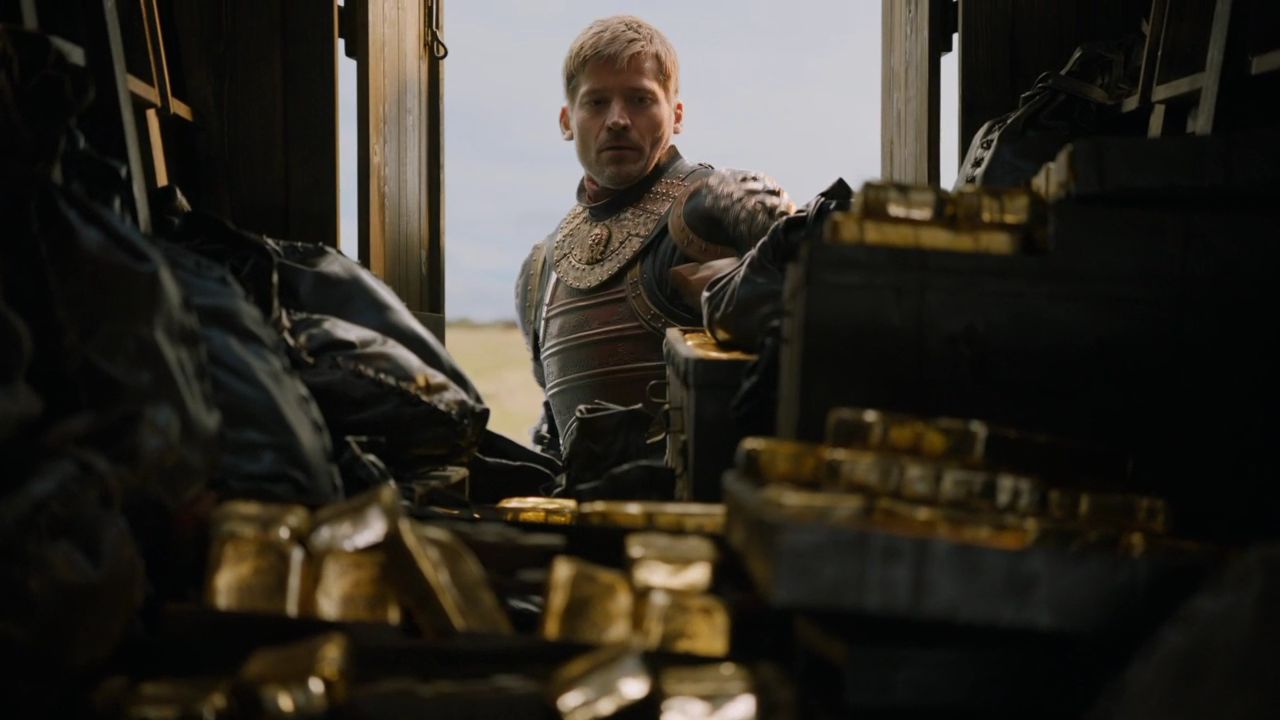
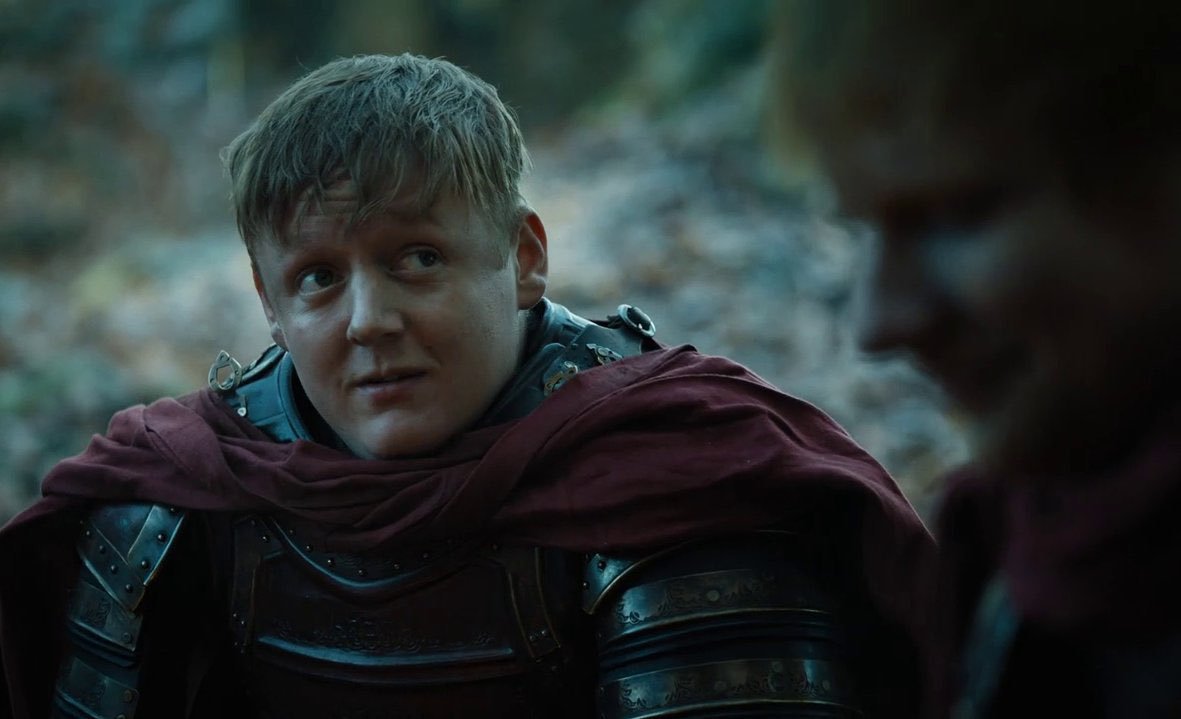
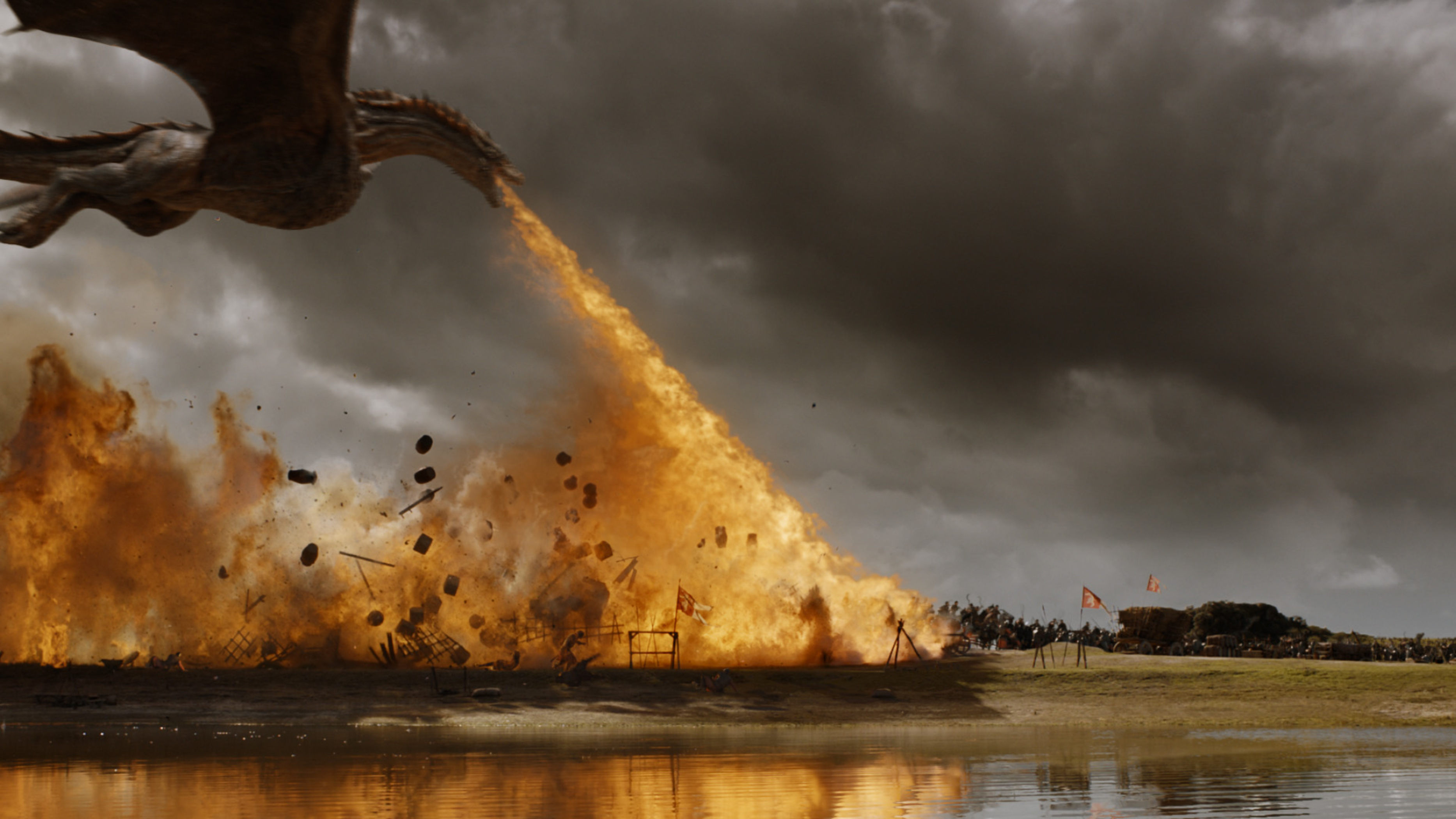
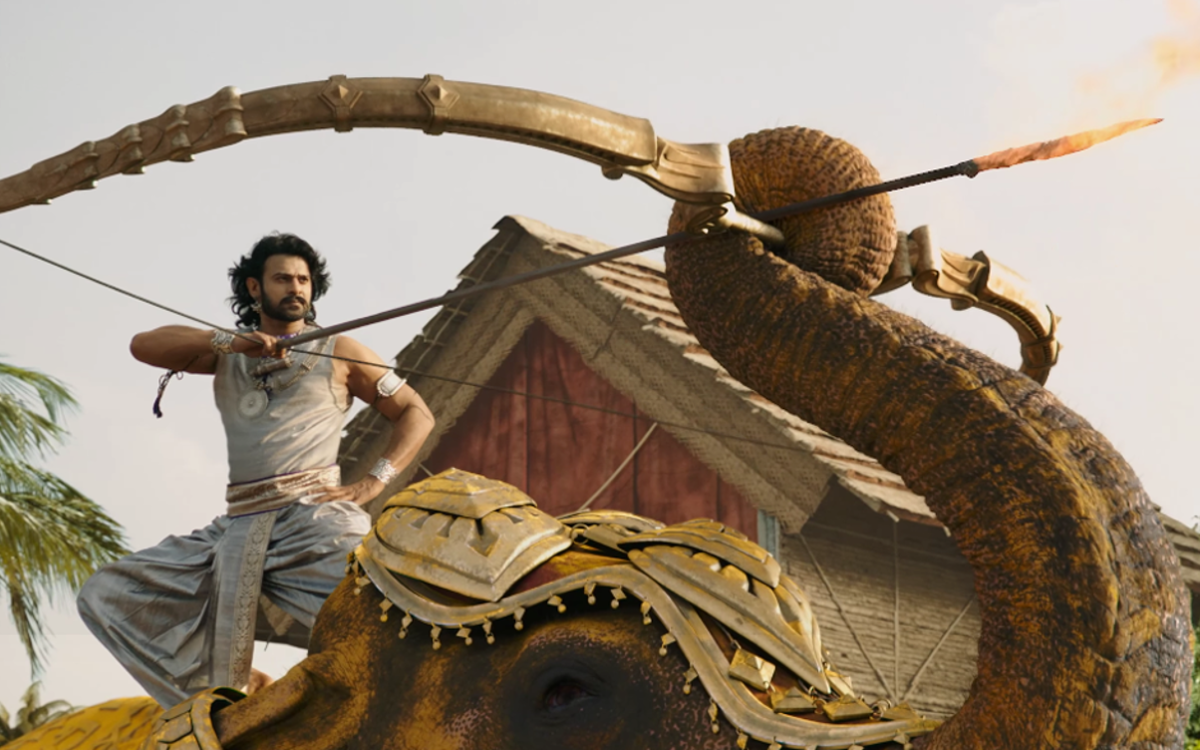
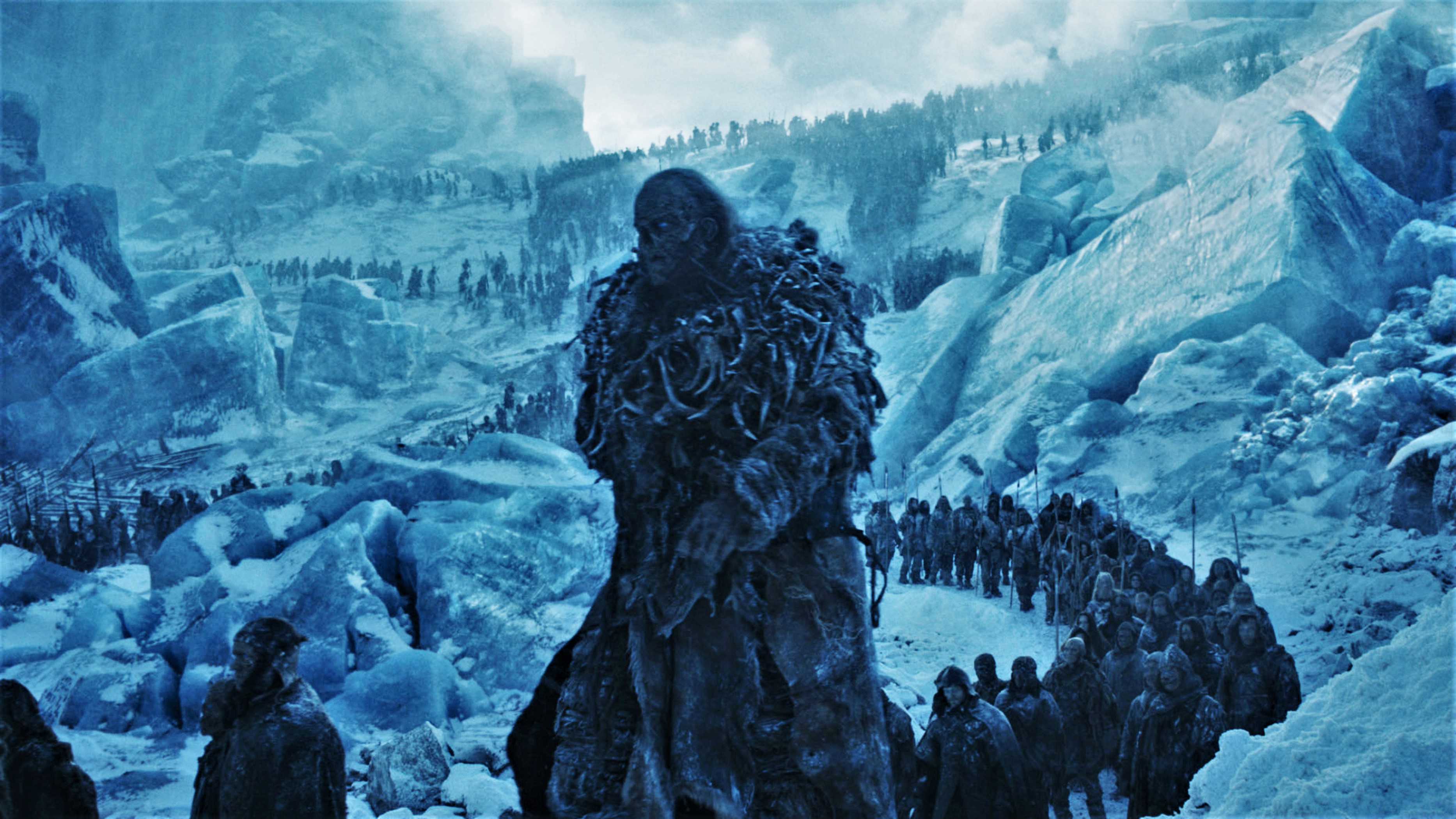
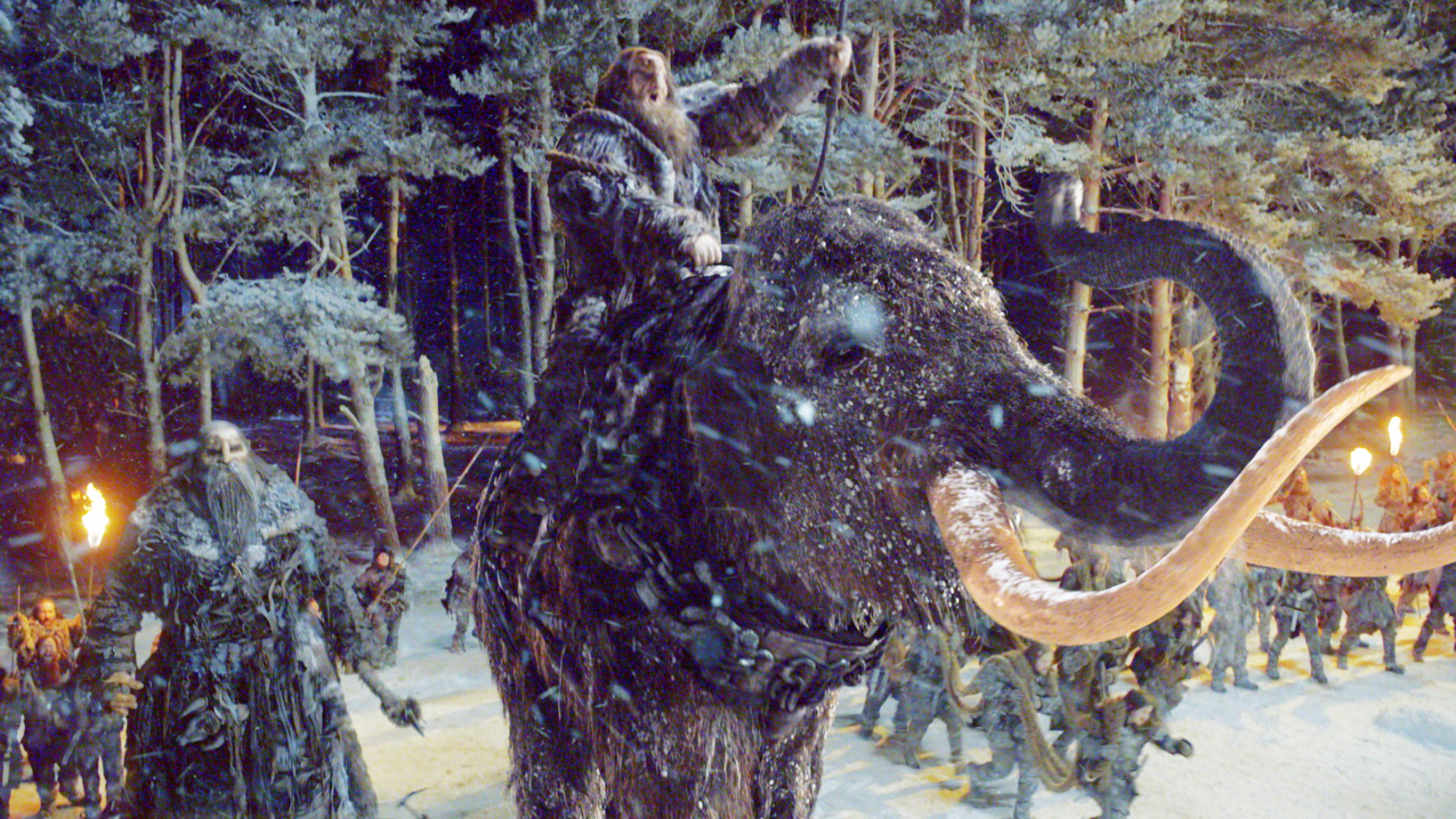

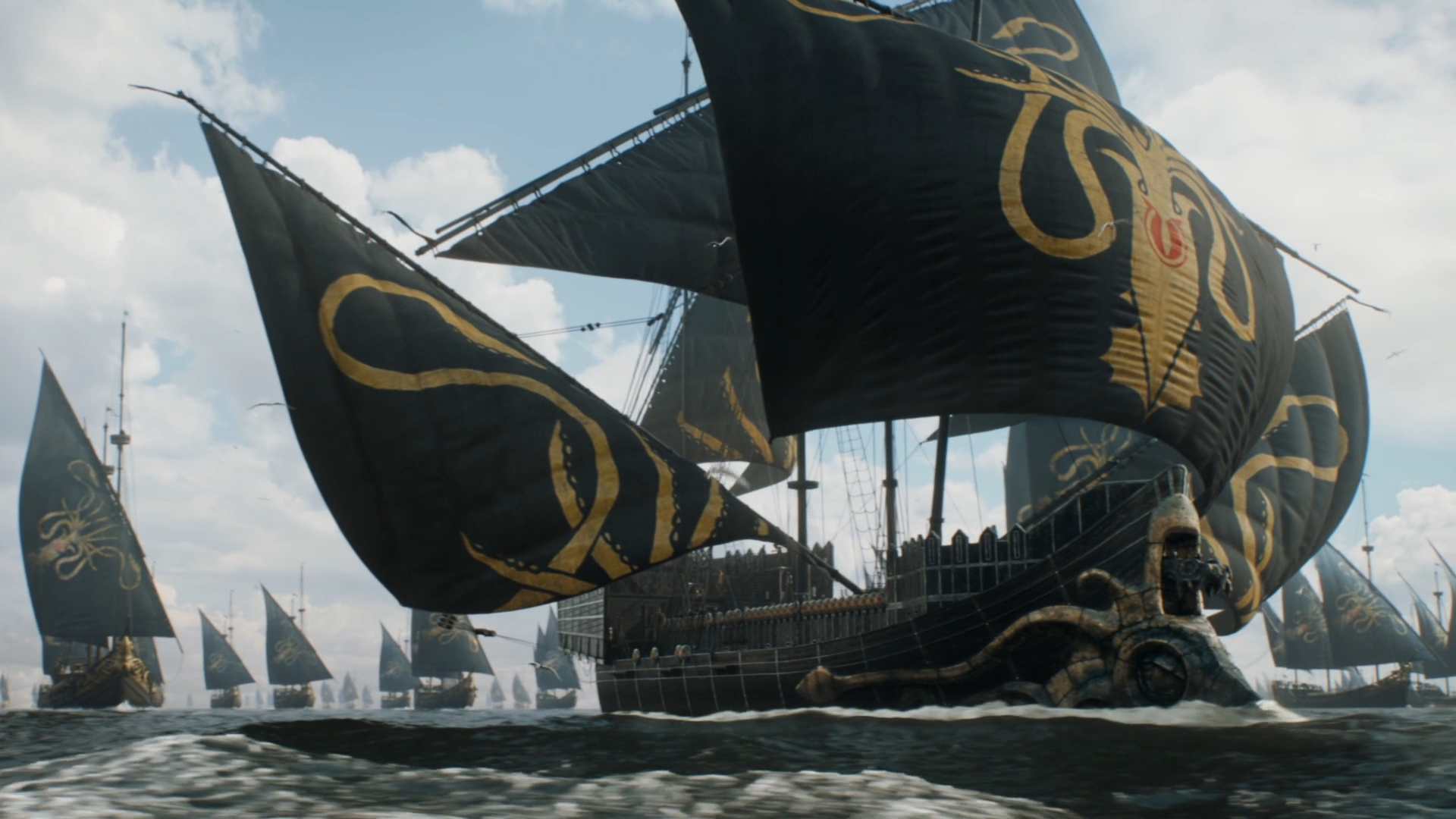
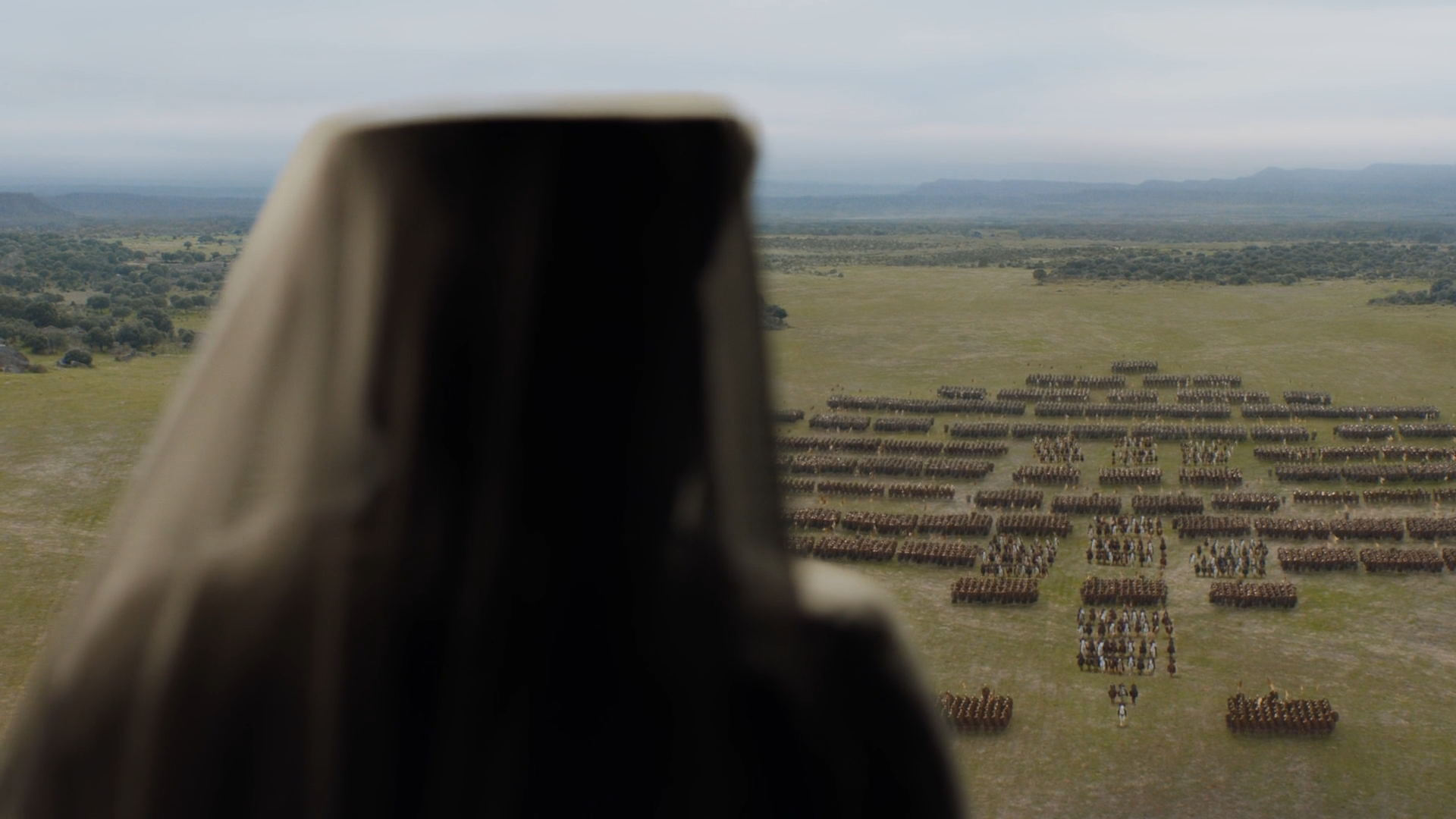
No comments:
Post a Comment